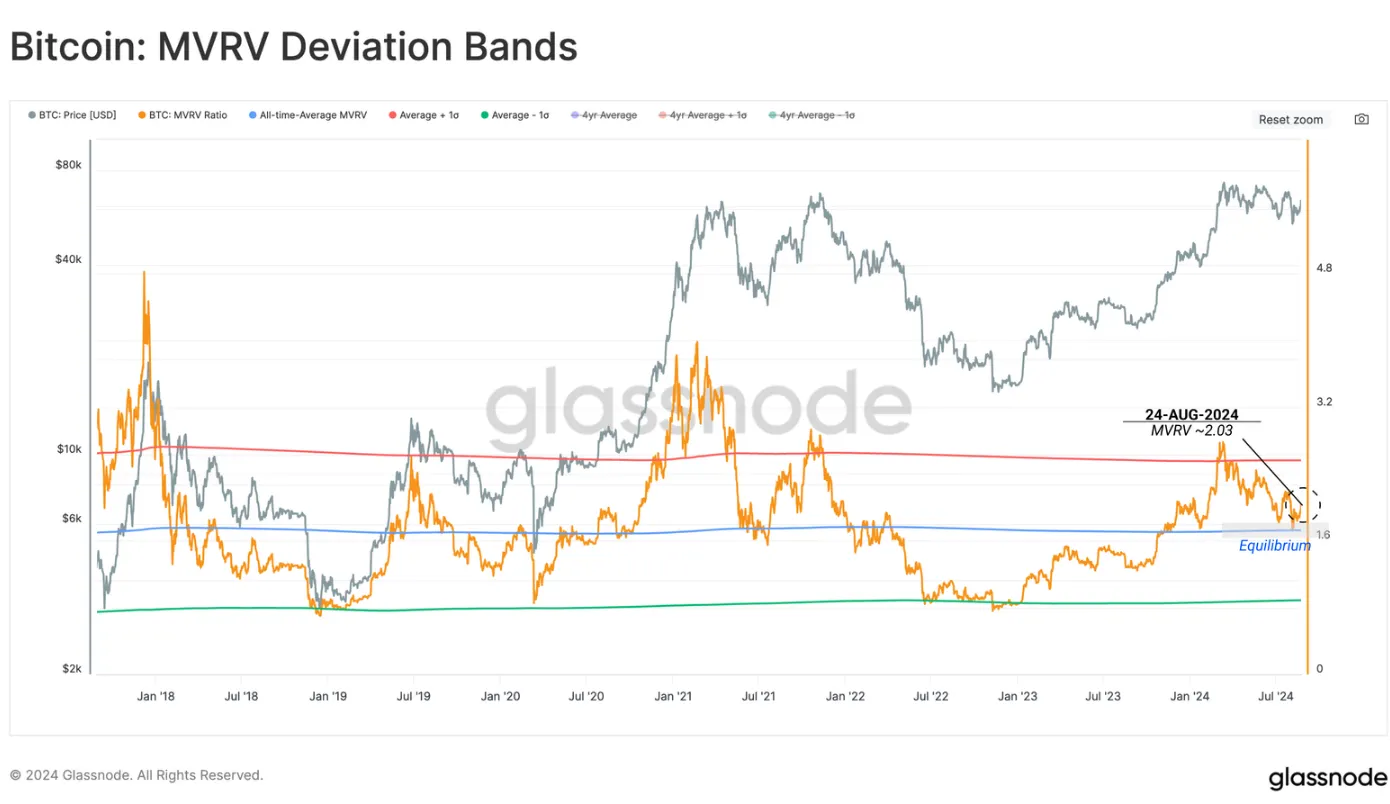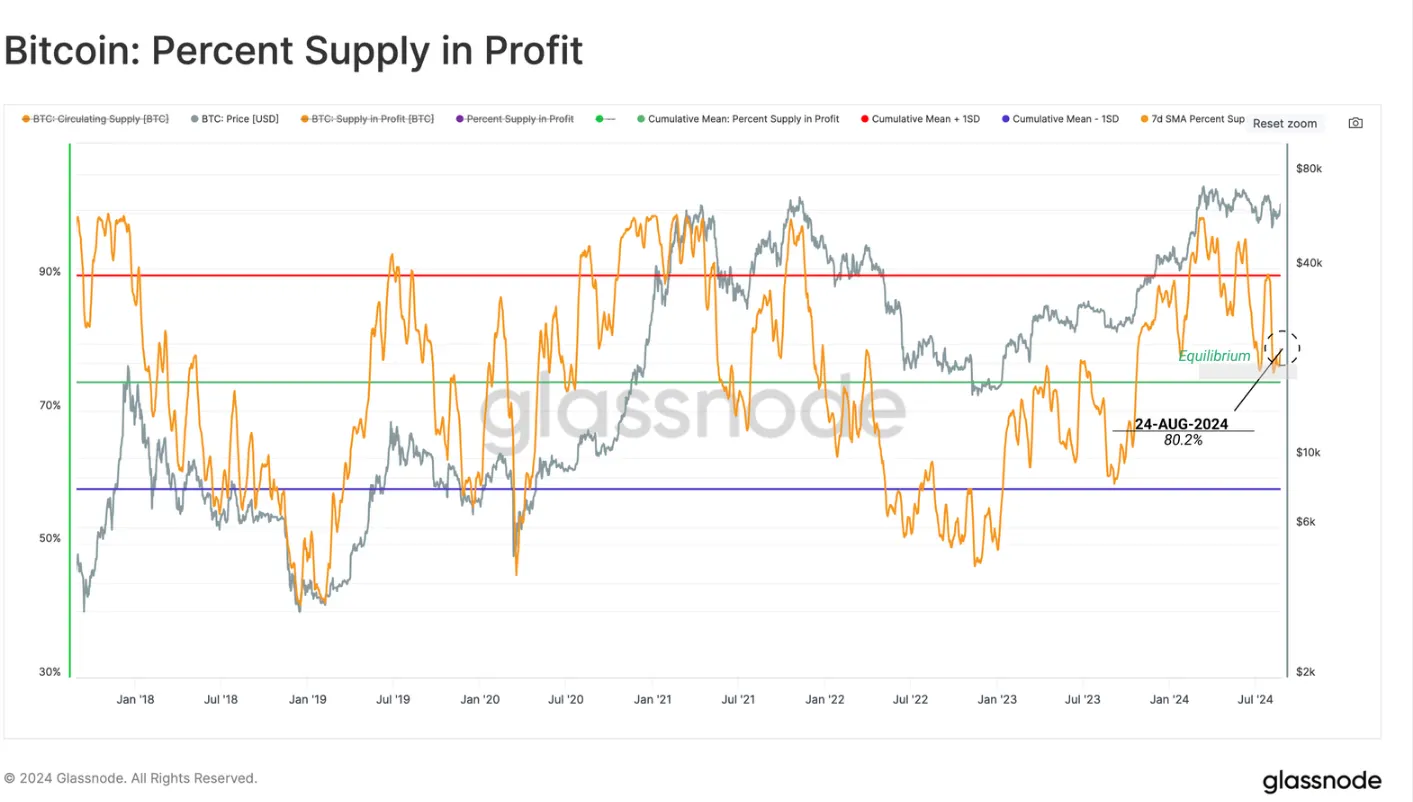Bitcoin (BTC) has entered an uncharacteristic period of calm, a recent analysis says, but there are signs of an impending surge in volatility.
According to the latest weekly report from blockchain analytics firm Glassnode, key indicators suggest that the cryptocurrency market is experiencing a rare equilibrium—and that it might not last.
“Historically, periods of quiet and calm market structure are short-lived, and often precede an expectation for heightened volatility,” the report said.
One of the most telling metrics highlighted in the report is the MVRV (Market Value to Realized Value) ratio. This indicator compares Bitcoin's current market price to the average price at which coins were last moved, effectively measuring the average profit or loss of all Bitcoin holders.
"Over the last two weeks, the MVRV ratio has tested its all-time average value of 1.72," the report states. "This critical level has historically marked a transition point between a macro bull versus bear market trend."
Notably, an MVRV ratio above 1 indicates that the current market value exceeds the realized value, suggesting that the average holder is in profit. Conversely, a ratio below 1 implies that the average holder is at a loss. The current testing of the 1.72 level is particularly significant after the excitement surrounding the launch of Bitcoin spot ETFs.
"This suggests that investor profitability has essentially reset to an equilibrium position and that the excitement and exuberance after the ETF launch have cooled off completely," according to Glassnode.

Adding to the intrigue, the report notes a marked cooling in net capital flows into Bitcoin assets, with investors engaging in only marginal profit and loss-taking activities. Glassnode points out that "89% of days experience a capital inflow larger than today, excluding during loss-dominant bear markets."
Further complicating the picture, a significant portion of Bitcoin supply held by short-term investors is on the verge of transitioning into long-term holder status, having been held for at least 155 days—a shift that could also impact market swings in the near future.

In the derivatives market, Glassnode adds, speculation in perpetual swaps has experienced a full reset. The ratio between price and net liquidation volume volatility is approaching levels not seen since February 2022, indicating a significant decline in traders' appetite for leveraged positions.
"Typically, this metric returns to a neutral level near inflection points such as a continuation of the trend or a reversal back into a macro scale bearish trend," the report said.

